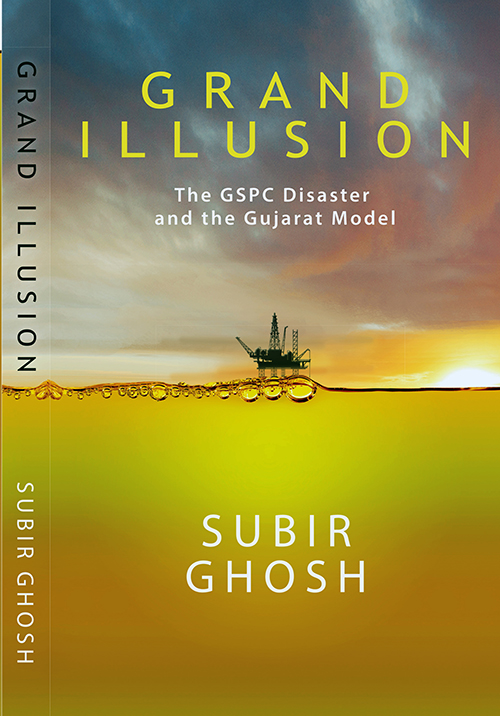The reluctant resignation over the weekend of India's Communications and Information Technology Minister Andimuthu Raja marks the end of a concerted campaign over the past two years for him to be removed.
The allegations against Mr Raja have been described by some analysts as the country's biggest-ever scandal - amounting to about $37bn (£23bn).
He is alleged to have sold scarce electromagnetic spectrum - used for mobile telecommunications - at discount rates to a select group of firms.
Mr Raja said he was leaving "to avoid embarrassment to the government", arguing that he was following past precedents and not violating the law.
His departure has been welcomed by opposition parties, who have long wanted to see the back of the lower-caste (Dalit) minister, who belongs to the Dravida Munnetra Kazhagam (DMK) political party based in the southern state of Tamil Nadu.
Leaked report
The clamour for Mr Raja's head gained momentum in recent days, paralysing the workings of parliament.
In October the Supreme Court of India criticised the country's premier investigating agency, the Central Bureau of Investigation (CBI), for proceeding slowly in booking those responsible for what the media describes as the "spectrum scam".
Adding to Mr Raja's troubles, a leaked report of government auditors in the office of the Comptroller and Auditor General (CAG) of India found him personally responsible for deliberately under-valuing mobile phone frequencies known as spectrum.
It furthermore accused him of manipulating the process through which companies applied for licences using a controversial first-come-first-served basis.
The CAG of India is a constitutional authority and its reports are tabled in parliament - the specific report on the under-valuation of spectrum is expected to become public soon.
An important reason why the former minister remained in his position for as long as he did is said to be because of the "compulsions of coalition politics".
The DMK's 18 MPs are part of the ruling United Progressive Alliance coalition in Delhi led by the Indian National Congress - while 34 Congress members of the legislative assembly of Tamil Nadu ensure that the DMK-led coalition government in the state is in the majority.
Mr Raja claims that by bringing in new players to break an existing "cartel" of mobile telephone operators, he was able to increase the number of mobile phone users in India and bring down tariffs.
At present, there are more than 700 million mobile phone users - more than double the number five years ago making it the world's fastest growing mobile market - and user charges are among the lowest in the world.
In fact, in large metropolitan areas like Delhi and Madras - the capital of Tamil Nadu - there are more phones (landlines and mobiles) than people as customers use their connectivity for everything from e-mailing to banking.
It is also a market which is becoming increasingly lucrative. In May 2010 an auction of the country's third generation (3G) bandwidth for mobile phone services ended with the government reaping $15bn, twice the sum expected.
In a country with a comparatively small number of PCs, growing numbers of Indians use their phones for a range of activities. Providers see big growth potential in the services they can offer, from cricket reports to online banking to crop prices for farmers.
Rock-bottom rates
But the recent sharp rise in the number of mobile users has led to an acute shortage of spectrum - whose allotment is controlled by public authorities the world over.
As demand for spectrum went up - and since the country's defence services were tardy in vacating the spectrum they have traditionally controlled - the real price shot up dramatically.
It was in this context that Mr Raja was accused of selling a precious national resource at rock-bottom rates.
Critics of the former minister argue that pressures of competition would have ensured that tele-density would have gone up and call tariffs declined automatically even if spectrum had been allotted at market prices.
What the Department of Telecommunications headed by Mr Raja did in January 2008 was farm out spectrum licences at prices determined seven years earlier, in 2001, when the country's market for mobile telephony was much smaller.
That public auction of third-generation spectrum in 2010 clearly indicated that even the price of second-generation spectrum in 2008 was at least one-tenth of the price it now fetches.
What was worse was that in the name of breaking a cartel, allegations were levelled against the former minister that he had favoured a particular group of companies who had no prior experience in telecommunications.
These firms, in turn, then expanded their equity share capital by roping in new partners, including multi-national corporations from Norway and the United Arab Emirates who paid large sums of money to acquire shares in their Indian associates.
The leaked CAG report, which has been seen by this correspondent, alleges that many of the companies who got telecom licences were not eligible to receive them in the first place.
While the Congress is resisting the formation of a multi-party parliamentary committee to inquire into the scam, opposition MPs cutting across ideological lines, on Monday called for Mr Raja's arrest and incarceration.
DMK head and Tamil Nadu Chief Minister Muthuvel Karunanidhi insists that Mr Raja resigned only to allow parliament to function normally and that the former telecoms minister was not guilty of the accusations made against him.
Time will tell whether the long arm of the law in India will catch up with those responsible for selling a scarce resource like spectrum so cheaply.


